|
If this message is not displayed correctly, please click here.
AHK Azerbaijan Newsletter | 18.01.2022
|
|
Dear AHK member,
we cordially invite you to the next meeting of the Financial Services Working Group of AHK Azerbaijan on Tuesday, 25 January 2022 at 11:00 (GMT+4, Baku) which will be held online over Zoom.
The meeting will be focused on the digitalisation strategy for the finance and banking sector. We will be joined by Mr Farid Osmanov, Executive Director of the Central Bank of the Republic of Azerbaijan who will give a speech covering a number of key areas related to digitalisation.
Mr Azer Alasgarov, Director of the Monetary Policy Department and Mr Elchin Gulaliyev, Head of the Subdivision under the Monetary Policy Department as well as Ms Leyla Nabiyeva, Director of the Prudential Policy and Methodology Department will also be present in the meeting and will participate in the Q&A session.
The meeting is for AHK members only and is free of charge. The event will be held in English. The link and password to participate in the meeting will be shared with you one day in advance.
To participate please, register for the event by sending an e-mail to khagani.gasimov@ahk-baku.de including your full name, position, and contact details by 24 January 2022.
For further information, please visit our our website.
We are looking forward to welcoming you at the meeting.
Best regards,
AHK Team
|
|
From December 2021 to March 2022, AHK Azerbaijan, in partnership with the Plovdiv Chamber of Commerce and Industry (PCCI), is implementing the unique project, which supports SMEs to showcase their businesses to the EU and Azerbaijani counterparts and institutions. In this framework, the Azerbaijani wine exporters will have a chance to present their products at the VINARIA in Plovdiv, the largest exhibition of the wine industry in the Balkans with more than 110 exhibitors and 42.000 visitors each year, as well as at the 1st EU-Azerbaijan Wine Summit in Azerbaijan. The preliminary agenda of the project includes the following modules: - Virtual Pre-Delegation Workshop for wine companies (February 1-3, 2022): “How to Export to Bulgaria” / “How to Export to Azerbaijan” / Strategic Workshop on “Market Entry, Export and Internationalization”
- Study Visit to Bulgaria/Plovdiv and its rural areas including VINARIA exhibition (February 23-25, 2022)
- Study Visit along the Azerbaijan Wine Route including 1st EU-Azerbaijan Wine Summit (March 14-16, 2022)
The project is funded by the European Union's EU4Business: Connecting Companies (EU4BCC) initiative, which is managed by EUROCHAMBRES. For further information please, check out our press release. |
|
We are pleased to invite you to take part in the project Create.Industry! – Bridging Culture and Creativity of Bulgaria and Azerbaijan.
AHK Azerbaijan, together with the Plovdiv Chamber of Commerce and Industry (PCCI), is providing the SMEs with an opportunity to showcase their businesses to the EU and Azerbaijani counterparts and institutions in the fields of handicrafts, design & fashion, visual & performing arts.
The modules include the following:
- Virtual Pre-Delegation Workshop / Kick-off Meeting & Digital Coaching Sessions
- Meet-up & Kick-off: Pairing between beneficiaries
- Digital Coaching Sessions: “A new digital approach to further develop the CCI (Cultural-Creative Industries) sector”
- B2B Delegation to Azerbaijan and its rural areas including 1st CultRural Azerbaijan Festival
- B2B Delegation to Plovdiv, Bulgaria and its rural areas
The project is funded by the European Union's EU4Business: Connecting Companies (EU4BCC) initiative, which is managed by EUROCHAMBRES.
Should you have any questions, please do not hesitate to contact Ms Turkan Maharramova via email at turkan.maharramova(at)ahk-baku.de or phone at +994 12 497 63 06.
The application deadline ends on 20 January 2022.
Please, click here to start your registration.
|
|
 |
There are in total 626.085 confirmed cases with 8.529 recorded deaths within the country, while 608.777 patients have recovered. A total of 8.779 people are placed under quarantine in Azerbaijan. Over the past period, more than 6.010.761 tests have been carried out in Azerbaijan to identify new cases of coronavirus (COVID-19) infection.
More
|
|
COVID Passports
Citizens will be required to present COVID-19 passports to enter sports and recreational centres. COVID passports will be comprised of two documents – vaccination certificate (about receiving vaccine jab) and immune certificate (about recovering from the disease). Both certificates will have a QR code and either of them will be required to enter sports and recreational centres.
From 1 September 2021, restrictions on the use of services (such as visiting restaurants and hotels, shopping malls, hairdressing and beauty salons, attending university) for unvaccinated persons will apply.
More
Note: AHK Azerbaijan is following a rotational shiftwork and remembering all health and safety compliances. We are available to our members and clients during this time and can be reached by e-mail or mobile phone (+994502076097).
|
|
|
If you feel ill stay at home and call
the health hotlines: 103, 113 and 1542!
|
|
| Here you will find the most important direct sources of information for Azerbaijan as well as for the postponed and cancelled trade fair events in Germany. |
|
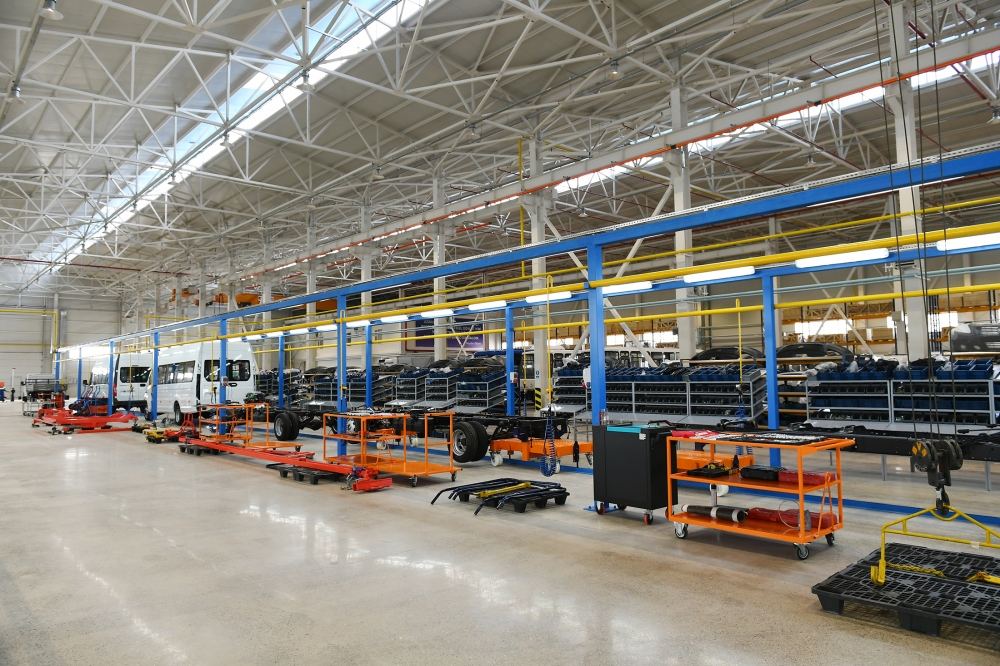
|
The value of products manufactured by industrial enterprises and individual businessmen in Azerbaijan grew in 2021, Trend reports citing the State Statistics Committee. According to the committee, this figure reached 54.5 billion manat ($32 billion), up by 2.83 billion manat ($1.66 billion), or 5.2 percent, on annual basis.
|
|
Last year, the manufacturing of non-oil products also increased – by 18.9 percent.Besides, according to the committee, 64.5 percent of industrial products were manufactured in mining, 29.9 percent - processing, 4.8 percent - production, distribution, and supply of electricity, gas, and steam, and 0.8 percent - water supply, waste treatment, and recycling sector.
At the same time, the production of marketable oil increased by 0.1 percent, while the production of marketable gas - by 23 percent.
In the processing sector, growth was observed in the manufacturing of construction materials (by 80.6 percent), pharmaceuticals (58.3 percent), tobacco products (54 percent), leather and its products (29.8 percent), textile products (26.8 percent), paper and cardboard (26.5 percent), chemical products (25.5 percent) and furniture (24.8 percent).
Manufacturing of cars, trailers, and semi-trailers rose by 21.3 percent, plastic and finished metal products - by 17.4 percent, metallurgical products - 16.9 percent, petrochemicals – 13.4 percent, food products - 10.2 percent, computers, and optical products – 8.3 percent and beverages – 2.3 percent.At the same time, the manufacturing of machinery and equipment declined by 9.1 percent, electrical equipment – 11.2 percent, clothing – 21.7 percent, wood products – 38.3 percent, and printing products - by 45.2 percent.
Output in the sector of production, distribution and supply of electricity, gas and steam increased by 7.1 percent, and in the sector of water supply, waste treatment and recycling - by 18.2 percent, added the committee.
|
|
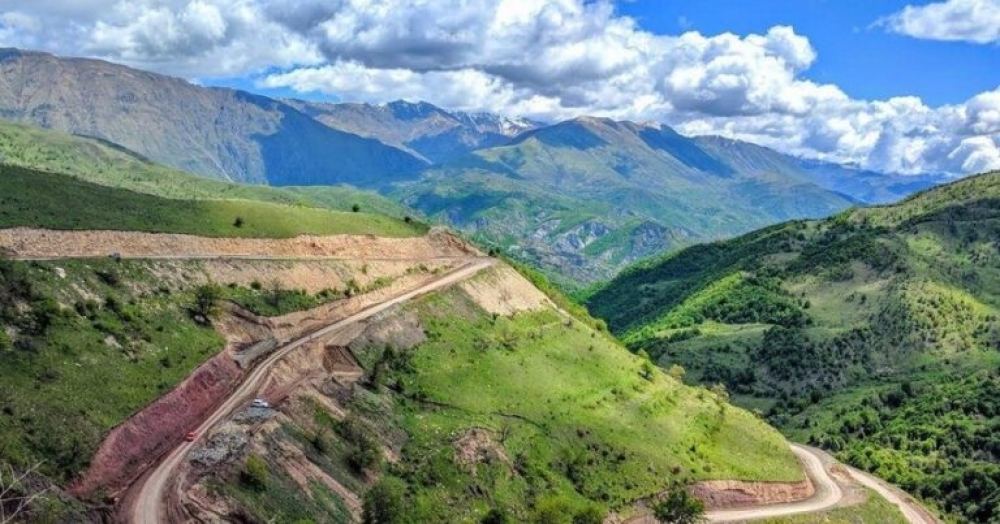
|
The II Karabakh Economic Forum will be held in Azerbaijan under the organization of the Public Association for the Support of Social Development "IMZA" in 2022, Trend reports.
More
|
|
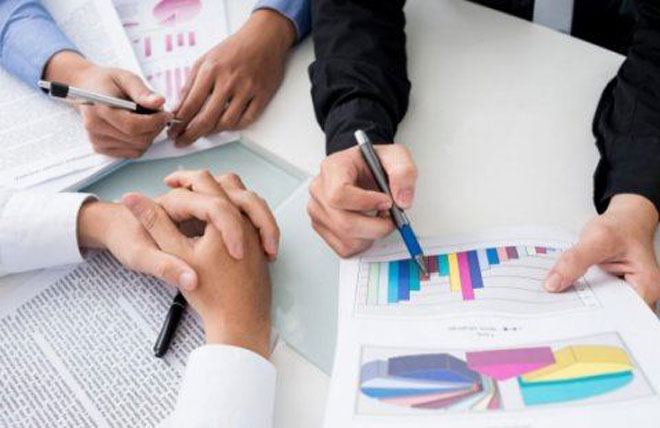
|
Azerbaijan's GDP increased by 5.6 percent to 92.8 billion manat ($54.6 billion) in 2021 compared to 2020, Trend reports citing the Azerbaijani State Statistics Committee.
At the same time, GDP per capita increased by 9,269 manat ($5,452).
|
|
Added value in the oil sector increased by 1.8 percent, while in the non-oil sector - by 7.2 percent in 2021 compared to 2020.
The share of industry in the structure of GDP reached 42.5 percent, which is by over 8 percent more than in 2020.
Some 10.1 percent accounted for trade and repair of vehicles, 6.9 percent - for transport and warehousing, 5.9 percent - for agriculture, forestry and fish farming, 5.9 percent for construction and 1.8 percent for information and communications. Some 18.5 percent accounted for the share of other sectors of the economy. Net tax revenues from the import of products amounted to 8.4 percent of GDP.
|
|
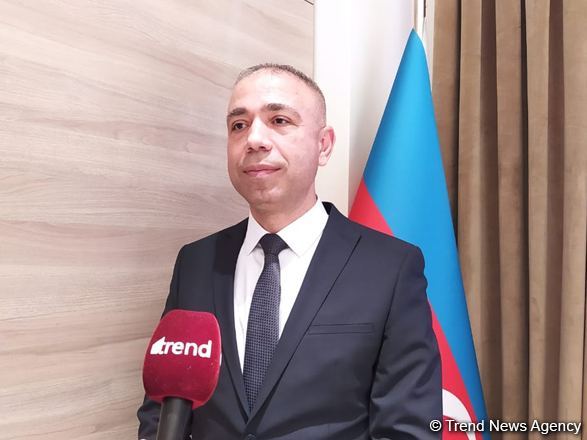
|
The potential of wind energy in the Azerbaijani sector of the Caspian Sea is 20 times higher than the installed capacity of power plants in the country, Deputy Energy Minister of Azerbaijan Elnur Soltanov said this in an interview with Trend.
|
|
"By using a small part of this potential Azerbaijan can fully meet its electricity demand with renewable energy sources," the deputy minister said. He pointed out that onshore renewable energy potential of Azerbaijan is 27,000 megawatts.
As for the production of offshore wind energy, Soltanov recalled that recently, the country signed a Memorandum of Understanding on cooperation in the field of offshore wind energy with ACWA Power of the Kingdom of Saudi Arabia. The Memorandum envisages the identification of the main principles of cooperation in the field of offshore wind energy, assessing the potential and providing the conditions for profitable investment in renewable energy projects in Azerbaijan.
However, the deputy minister noted that the production of offshore wind energy is more expensive.
“Our potential is huge. The implementation of these projects depends on economic profitability. The goal is to implement these projects at the lowest possible price, in accordance with the tariffs in force in Azerbaijan,” Soltanov added.
|
|

|
Hydrogen will change the geography of energy trade and lead to emergence of new centers of geopolitical influence built on the production and use of hydrogen, as traditional oil and gas trade declines, Trend reports with reference to the International Renewable Energy Agency (IRENA).
|
|
“Because changes in economic relations can affect political ties (and vice versa), the emergence of markets in hydrogen and other clean fuels could bring about shifts in political relations and alliances between countries. Trade relations in oil and gas markets have largely been shaped by geology: hydrocarbon reserves are concentrated in a limited number of countries. Meanwhile, 80 percent of the world’s population lives in countries that are net importers of fossil fuels. By contrast, every country has renewable resources, although the strength of the wind and the quality of solar irradiance do vary around the world, and other renewables like hydropower or geothermal energy are more prevalent in some locations,” IRENA said in its latest report.
The agency believes that since renewable energy is ubiquitous, countries may gain the flexibility to choose preferred trading partners in the clean fuel markets of the future.
“However, the ability of countries to turn renewable potential into energy production depends on their industrial capacities and on the intellectual property underpinning innovation in the renewables sector. These capacities are relatively concentrated in a few countries. By implication, most countries are dependent on imports of PV panels, wind turbines, and other equipment from a relatively small set of countries. Therefore, trade relations in renewable energy are, to a large extent, shaped by national industrial policies,” says IRENA.
The report says that hydrogen trade flows may also raise new strategic considerations.
“As some countries and regions begin to import hydrogen in large quantities, the strategic importance of exporting countries will grow. New hydrogen production centres and shipping routes will also inform strategic planning by security and defence organisations. Opportunities will arise to shape the nascent hydrogen market to advance sustainable development. Germany, for example, has already engaged several African countries to explore and develop a hydrogen economy that makes use of the continent’s resource potential to support sustainable economic development,” said the agency.
|
|
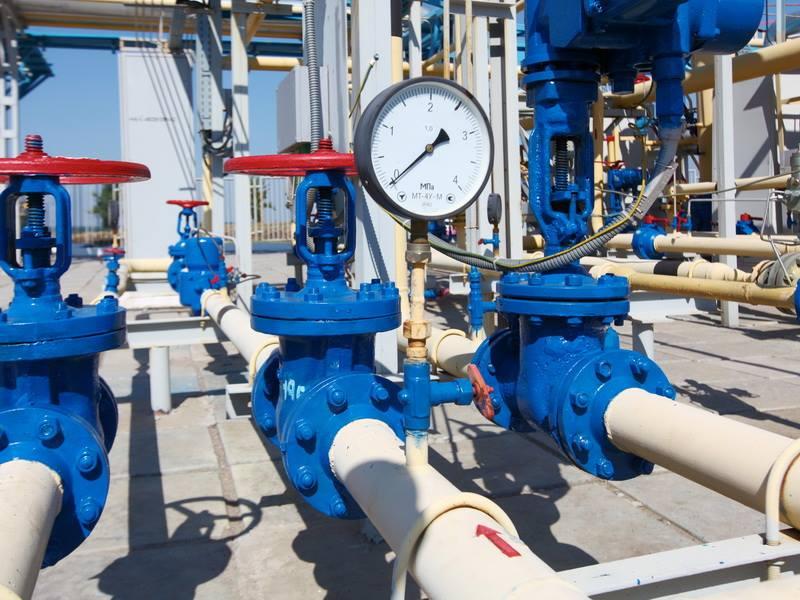
|
After the commissioning of the Khizi-Absheron wind farm, Azerbaijan will be able to increase the export of gas by 220 million cubic meters, Deputy Director of the International Institute for Energy Policy and Diplomacy under Moscow State University of International Relations (MGIMO), analyst of the MGIMO Center
|
|
for Sustainable Development, expert, Ph.D. in Economics Igbal Guliyev told Trend.
Guliyev added that the groundbreaking ceremony for this wind farm with an installed capacity of 240 MW is a qualitatively new stage in the construction of the biggest renewable energy facilities, which can greatly reduce the carbon footprint and greatly change the structure of Azerbaijan's energy balance.“This large-scale project will be implemented by the Saudi Arabian ACWA Power company on a build-own-operate basis at two main production sites, namely, in Sitalchay village of Khizi district, in which 25 turbines with a capacity of 6.5 MW each will be installed, and in Perekeshkul village of Absheron district (12 turbines of 6.5 MW each),” the analyst added.
Guliyev stressed that the total investments in the project will reach about $300 million while the process of building the wind farm will take about 18 months.“
The Khizi-Absheron wind farm will produce one billion kilowatt-hours of electricity per year in accordance with the design documentation,” the analyst said.“Putting the wind farm into operation in 2023 will save 220 million cubic meters of natural gas,” the analyst said. “It will be possible to receive additional income from increasing export of gas, as well as prevent 400,000 tons of CO2 emissions into the atmosphere.
”Guliyev stressed that Azerbaijan plans to increase the share of renewable energy sources in the energy balance to 30 percent by creating about 700 MW of additional "green" capacity by 2030 through the auctions for foreign companies.“This intention includes two important goals for Azerbaijan’s economic development, namely, ensuring the inflow of foreign investments into the national economy and increasing the share of "clean" energy,” the analyst said. “This will allow Azerbaijan to become the leader in the region in terms of the growth of energy capacity from alternative energy sources.”
Guliyev said that thus, the implementation of mega-projects based on renewable energy sources meets the key goals of Azerbaijan’s sustainable development and contributes to reducing dependence on carbon energy resources, increasing the share of the non-oil sector of the economy in GDP, modernizing and diversifying the national fuel and energy complex, as well as improving the environmental situation and reducing greenhouse gas emissions.
|
|

|
Veyseloglu Group of Companies has been an active member and valuable partner of AHK Azerbaijan since 2009. They have recently announced their Retail Index, VRI, for December. This indicator reflects the changes in the average value of the most in-demand essential goods purchased by the VGC's customers over the period of the last 24 months.
According to the company’s latest report, the VRI for December is 106,3%.
|
|
Effectively, this represents a 6,3% increase in the average value of the most commonly purchased products. There is a 4% increase in the average value of fresh (perishable) produce, while the average value of generic food products and soft (non-alcoholic) beverages has gone up by 8,5%. The average value of alcohol and tobacco products has seen a 6,9% increase.
The VRI aims to provide additional insight into price dynamics covering essential commodities. It also serves as a useful indicator that assists average consumers to plan their monthly expenditure and family budgets.
|
|
|

Upcoming events
|
|
All events
|
Contact person Supported by: |
|
Zinyat Amirova
Market Analysis and Communications
AHK Azerbaijan |
 |
|
|
Follow us for further updates! |
|
Data protection policy:
The information and opinions contained in this newsletter have been compiled or arrived at from sources believed to be reliable. Therefore the publisher accepts no liability or guarantee of the accuracy, competeness and corectness of the information provided in the document. The statistical evaluations (number of newsletter openings, clicks, undeliverability and unsubscriptions) of the newsleter by Cleverreach may contain the email data of recipients. This information is not passed on to third parties or used for other purposes.
|
|
Copyright:
This newsletter is subject to German copyright law. Contents of this newsletter may be copied, distributed or linked to only if "German-Azerbaijani Chamber of Commerce" is visibly shown as a source.
© 2021. All rights reserved.
|
|
|
If you don't want to receive any more messages (to: unknown@noemail.com) any longer, you can unsubscribe free of charge at any time.
Deutsch-Aserbaidschanische Auslandshandelskammer | Alman-Azərbaycan Xarici Ticarət Palatasι | German-Azerbaijani Chamber of Commerce
Winter Park Plaza, 7th floor 75 Rasul Rza Str.; 1014 Baku, Azerbaijan; +994 12 497 63 06/07
|


















